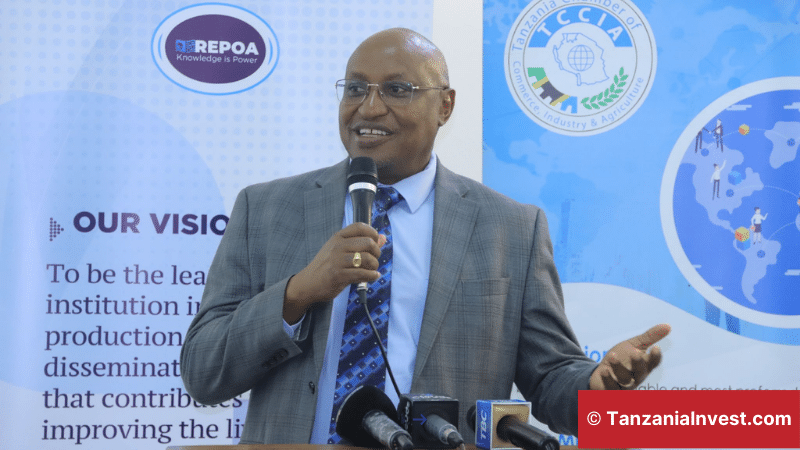Tanzania’s leading research institution REPOA, recently disclosed pivotal findings from a comprehensive study investigating the ramifications of taxation on business development in Tanzania.
The study was conducted in collaboration with the Tanzania Chamber of Commerce, Industry & Agriculture (TCCIA) and the Chr. Michelsen Institute (CMI) of Norway.
The insights were unveiled in Dar es Salaam on 21st March 2024, shedding light on critical challenges and avenues for reform within Tanzania’s tax system.
The study, motivated by the imperative to understand the real-world implications of taxation on business growth, offers a nuanced perspective garnered from the Tanzanian business community.
Through a survey encompassing firms of varied sizes and sectors, including manufacturing, hospitality, trade, agriculture, forestry, construction, real estate, and professional services, the study sought to capture firsthand experiences and perceptions regarding taxation.
Conducted from October to November 2023, the survey targeted 957 firms in Dar es Salaam and Arusha, coinciding with the increase in the VAT threshold from 100 million TZS to 200 million TZS annual turnover.
In this survey’s sampling, most firms are in manufacturing, hospitality, and trade. Other includes agriculture, forestry, construction, real estate, and professional services.
Key findings from the study:
- Optimism and Obstacles: While an overall sense of optimism pervades the business community, taxation emerges as a barrier hindering business development and growth prospects.
- Uncertainty and Compliance Burden: The study underscores the significant burden of uncertainty surrounding taxation, likening it to the uncertainties associated with future demand. Particularly in sectors such as hospitality, high compliance burdens exacerbate operational challenges.
- Perceptions of Tax Compliance: Alarmingly, approximately half of the surveyed businesspeople perceive widespread tax evasion, indicating pervasive challenges in tax compliance across sectors.
- Fairness and Satisfaction: Despite prevalent concerns, approximately half of the surveyed businesses find the current tax system fair and express satisfaction with its operation.
Drawing upon these critical insights, the study outlines comprehensive policy implications and recommendations aimed at reforming Tanzania’s tax regime:
- Transparency and Clarity: Advocating for clear, unambiguous tax rules with minimal exemptions to foster stability, predictability, and equitable treatment of businesses.
- Simplicity and Engagement: Proposing streamlined tax administration processes to alleviate compliance burdens and enhance engagement between the public and private sectors to ensure transparency and accountability.
- Trust and Transparency Enhancement: Emphasizing the imperative of bolstering trust in the Tanzania Revenue Authority (TRA) by fostering clearer links between taxes paid and the benefits accrued by taxpayers, thereby enhancing transparency and compliance.










